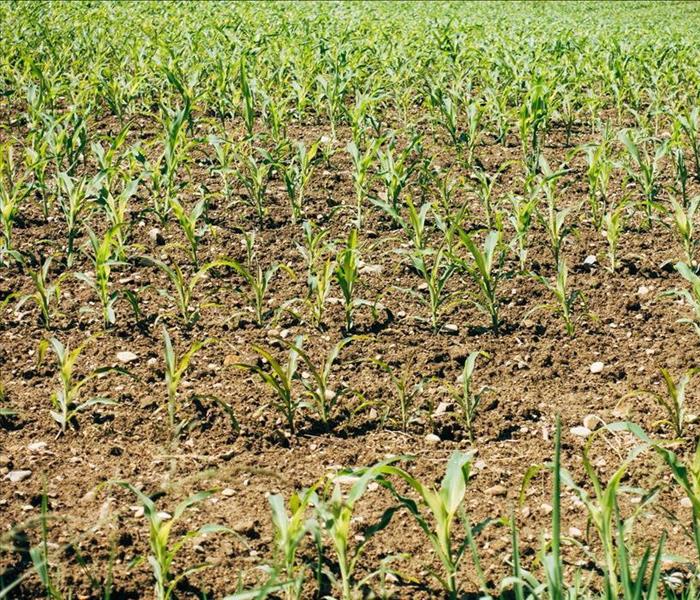Pesticide Runoff is Commonly Found in Black Water
11/16/2020 (Permalink)
Pesticides Found in Water at A Category 3 Loss
About a billion pounds of pesticides are used by farmers, commercial pesticide applicators, and homeowners on agricultural land, urban areas, and non-cropland around the USA. Although this has benefited the country by making it the largest producer of food globally, it has had some adverse effects on the environment and health.
The biggest concern to the environment and health is groundwater contamination due to all the pesticides resting on the land. Whenever the pesticides are sprayed on plants, they flow under the ground's surface and contaminate it. As well, according to insurance adjusters, when your property has a flood, the bacteria and pesticides found in the water will cause it to be a category three water loss.
Common Pesticides Found In Water
Most of the pesticides that are found in groundwater are those which are fused in the soil rather than the plants. For instance, when someone starts spraying pesticides on the crops and plants, it is getting on the soil below instead of the plants, which eventually leads to groundwater contamination. All the pesticides then reach the ground by leaching and runoff. When a flood occurs, the runoff will enter your home or business and be labeled a category 3 water loss.
Water runoff is the movement of water on sloped surfaces. On the other hand, leaching pesticides move with infiltrating water to the water table from the soil. The closer the water table is to the soil, the higher the water's probability of being contaminated.
You might be wondering why people use such chemicals if they have such a negative impact on the environment and, eventually, our health. Pesticides help control the insects, weeds, and other little harmful organisms that destroy crops and eat plants. Therefore, letting go of pesticides is challenging because farmers don't want their plants and/or crops ruined.
So, what should you do?
How To Prevent Pesticides In Water
There are multiple common practices that you can follow to minimize and even prevent water contamination in the long run. Here are some of the most effective ways to do so:
Selecting Appropriate Pesticides
The best thing you can do is choose the appropriate type of pesticide to avoid water contamination. For instance, if the soil is permeable and there is groundwater near the surface, get pesticides with the least leaking potential. Also, take into account all the advisory and precautionary information on the back of the pesticide container.
Prevent Pesticide Backflow
Backflow happens when the water loses its pressure and starts flowing back towards the water source. If this happens, the water source can be contaminated by pesticides, leading to more groundwater being contaminated. An easy way to prevent this is by adding an anti-siphon device!
Proper Pesticide Storage
The next thing you need to do is ensure that the pesticides are safely kept in storage in someplace that is spill-proof and possibly fire-resistant. This will prevent any accidental spillage leading to water contamination. In case of an unfortunate spillage, keep "Spill Kits" near the storage to avoid any extra pollution!
Filter Pesticides From Water
If you are worried about the water around you being contaminated and you fear for your health, there are some ways you can filter the pesticides from it. Granulated activated carbon (GAC) filters and reverse osmosis are two of the most popular ways to filter water pesticides.
Reverse osmosis is a process that purifies water by allowing the water molecules to pass through the membrane and keep other particles behind, eventually purifying the water. These larger ions or molecules are generally the ones from lead, iron, and pesticides at home.
On the other hand, you can use granulated activated carbon (GAC) filters that remove pesticides by ticking them to charcoal or coal materials. (GAC) filters are relatively inexpensive forms of filtration than reverse osmosis, but it is also not as efficient.
Conclusion
In a nutshell, you can now see that pesticides are often found in water runoff. When a flood occurs, the water runoff will enter your business, causing the damages to be categorized into a category 3 loss. Call SERVPRO of North Fulton today if you are experiencing a flood or water damage from a burst pipe. SERVPRO is available 24/7 and will adhere to the IICRC protocols.





 24/7 Emergency Service
24/7 Emergency Service
